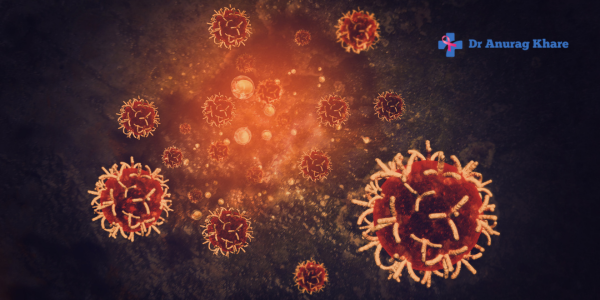Metastatic Breast Cancer Prognosis & Clinical Course
INCREASING INCIDENCE OF BREAST CANCER AND LOW AWARENESS OF BREAST HEALTH IN INDIAN WOMEN ARE A MATTER OF CONCERN
What is Metastatic Breast Cancer?
Metastatic breast cancer is when the breast cancer cells grow uncontrollably. A tumour develops which is nothing but a collection of these abnormal cells. Metastasis is a situation when the cancer cells spread and affect new areas in the body. In the case of metastatic breast cancer, the cells may spread to the bones, brain, lungs, and liver


Metastatic Breast Cancer Risk Factors
Like other cancer types, metastatic breast cancer also has certain risk factors. People who are recovering from an existing cancer are at a higher risk of getting metastatic cancer after finishing the cancer treatment. The risk of developing this depends on diverse cancer features like:
* Type of cancer cells
* Stage and condition at first diagnosis
* Treatment received for cancer
Metastatic Breast Cancer Treatment
Unfortunately, there is no cure for metastatic breast cancer as it’s impossible to get rid of the cancer cells once they have spread to other distant areas of the body. Having said that, the right and appropriate treatment plan can help improve the quality of life and extend it. Any metastatic breast cancer treatment plan aims at shrinking the tumour size, minimising its growth, and improving your symptoms.


Living With Metastatic Breast Cancer
* Eat a nutritious diet
* Adopt an active lifestyle and exercise every day to keep fit
* Manage stress with appropriate measures like exercises, yoga, etc
* Find emotional support with friends, family, and loved ones
* Seek guidance and support
Breast cancer can be cured successfully if you consult your breast surgeon at an early stage. But unfortunately, very few people come at an early stage. Majority come with locally advanced disease, although it is curable, chances of recurrence is higher, depending upon severity of disease as compared to early stage. Metastatic disease is another aspect of breast cancer when palliative treatment is the only option. So, why to wait for late stages when disease reflects poor prognosis. Always consult your breast surgeon whenever you feel any abnormality in your breast. However, to find out the abnormal you should know the normal. In other words, you must be aware about normal breast to differentiate with abnormal. Hence, breast self examination is the best way to find out any suspicious changes in your breast. Moreover, family history of breast cancer warns you to become more cautious. Believe in healthy lifestyle, regular exercise, low fat diet with natural antioxidants. Don’t forget ‘Early Detection’ can save your life.
